Advertisement
Popular Now
Project Zomboid is an unforgiving, open-world survival game set in the zombie-infested Knox Country, Kentucky. Known for its hardcore realism and depth, the game challenges players to survive as long as possible against relentless undead hordes while managing hunger, fatigue, and mental health. With no ultimate victory condition—only the inevitable question of “how will you die?”—mastering survival requires strategy, patience, and knowledge. This comprehensive guide offers essential tips and tricks to help both new and seasoned players delay their demise and thrive in this brutal apocalypse. Whether you’re barricading your first safehouse or planning a long-term farm, these insights will boost your chances of survival.
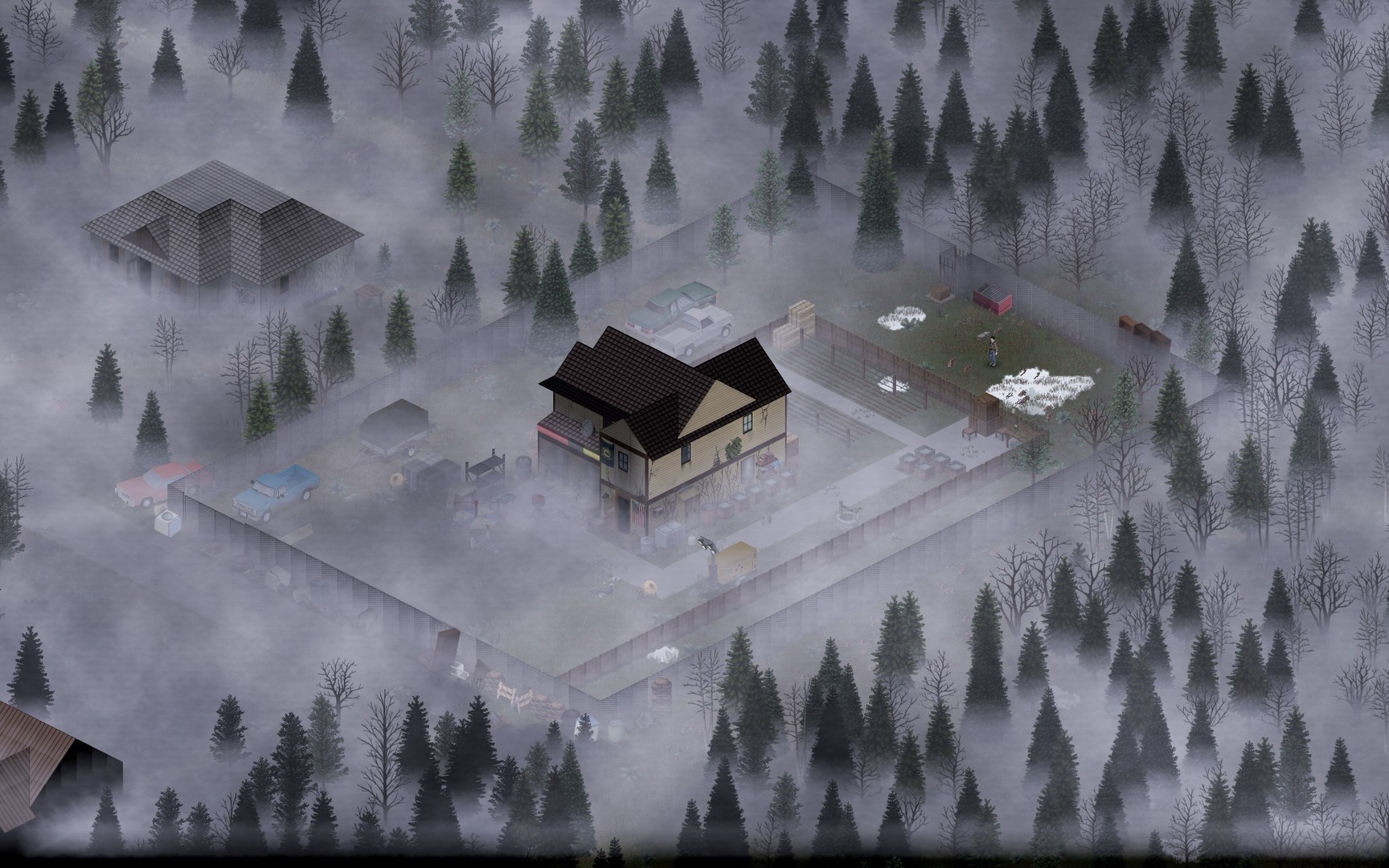 The first day in Project Zomboid is critical, as it sets the tone for your survival. You spawn in a random house or trailer, surrounded by potential threats. Your immediate goal is to secure basic supplies and stay quiet to avoid attracting zombies. Begin by crouching (default key: C) to reduce noise and visibility, as zombies can hear footsteps and see you through windows.
The first day in Project Zomboid is critical, as it sets the tone for your survival. You spawn in a random house or trailer, surrounded by potential threats. Your immediate goal is to secure basic supplies and stay quiet to avoid attracting zombies. Begin by crouching (default key: C) to reduce noise and visibility, as zombies can hear footsteps and see you through windows.
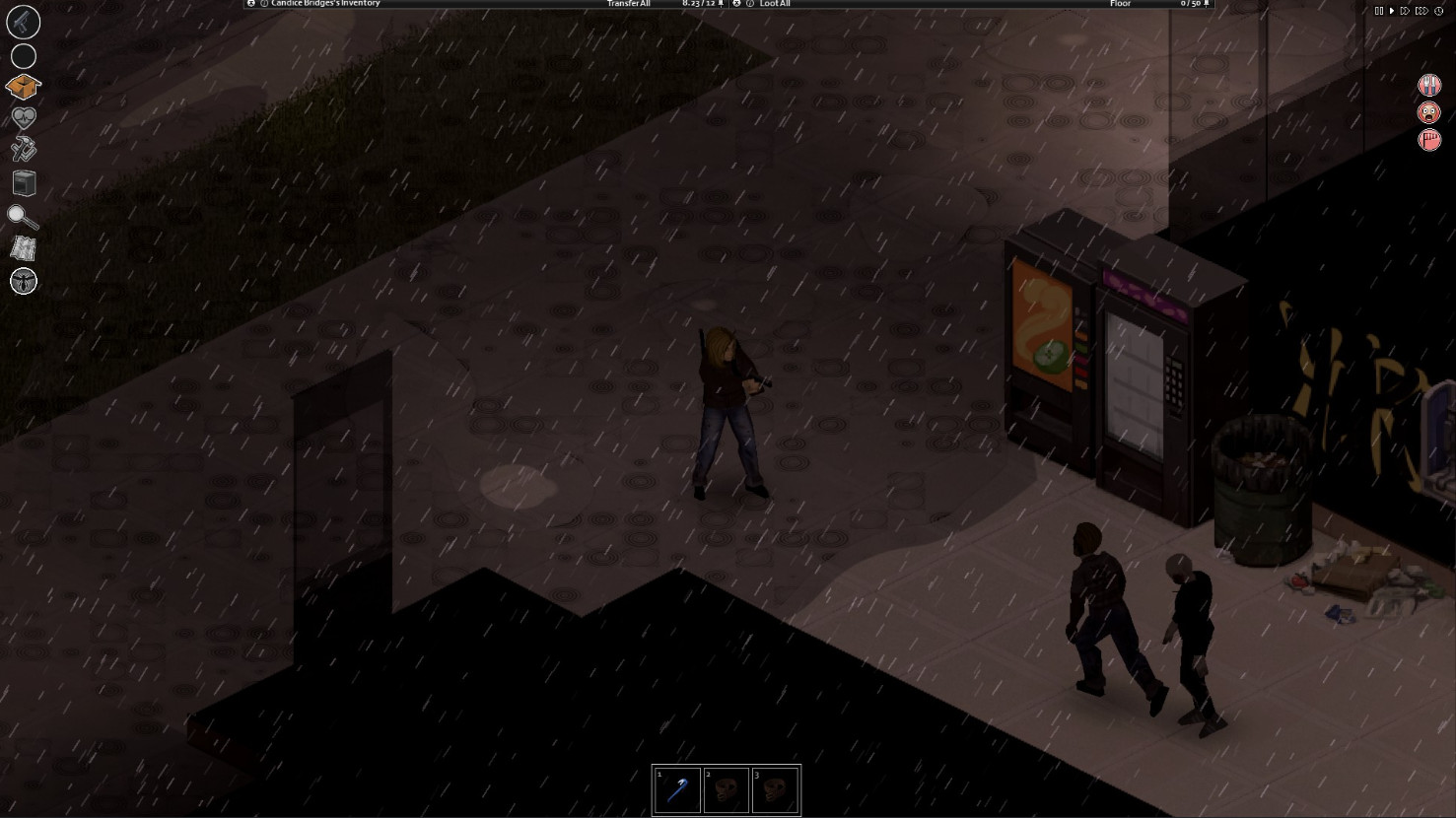 Character creation significantly affects your playstyle. Occupations and traits shape your starting skills and abilities, influencing how you tackle challenges. A well-built character can make early survival smoother and long-term goals more achievable.
Character creation significantly affects your playstyle. Occupations and traits shape your starting skills and abilities, influencing how you tackle challenges. A well-built character can make early survival smoother and long-term goals more achievable.
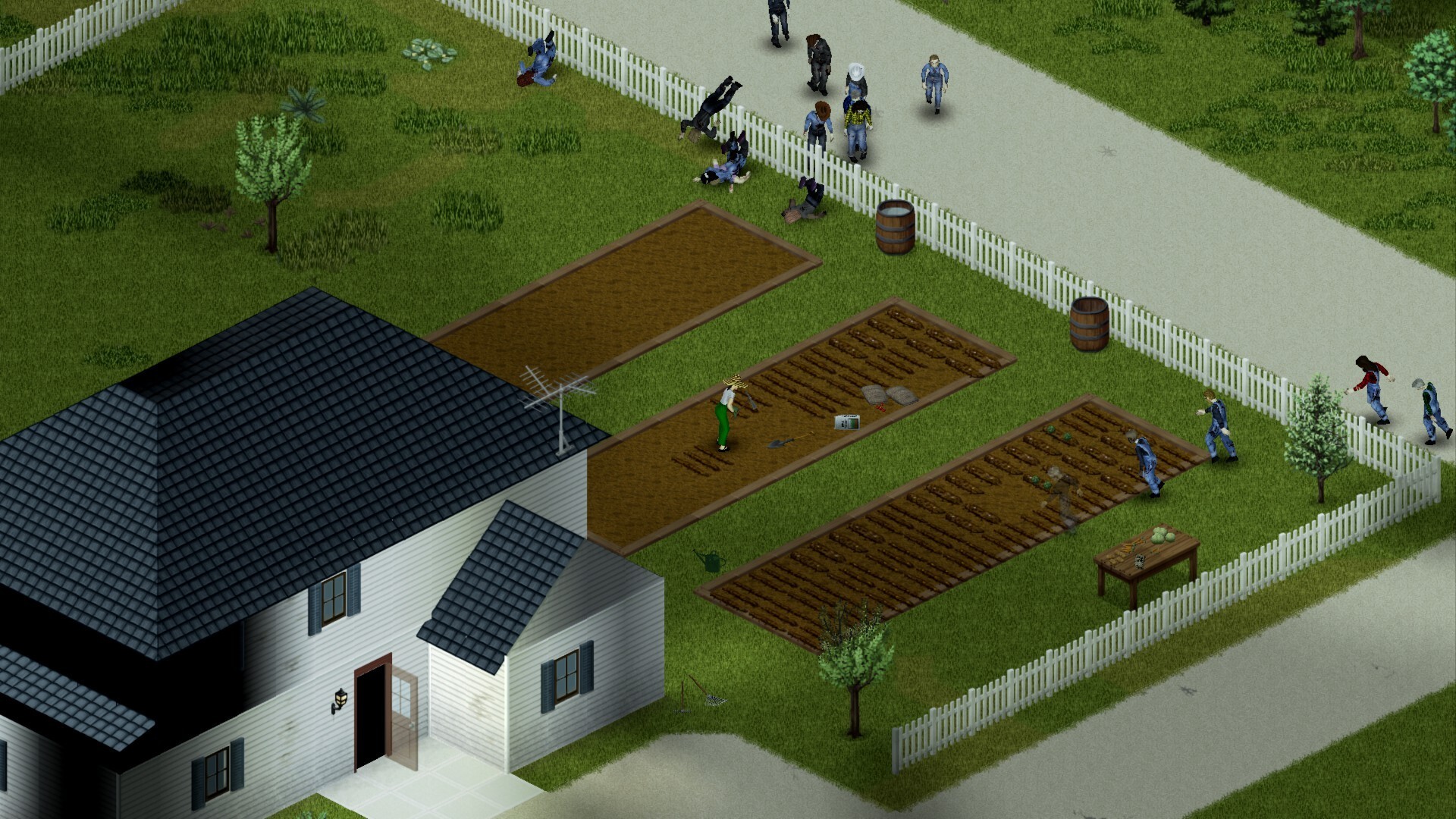 Surviving long-term requires careful resource management. Power and water shut off within 0-30 days (default settings), making food and water preservation critical. Stockpiling and planning ahead are key to avoiding starvation or dehydration.
Surviving long-term requires careful resource management. Power and water shut off within 0-30 days (default settings), making food and water preservation critical. Stockpiling and planning ahead are key to avoiding starvation or dehydration.
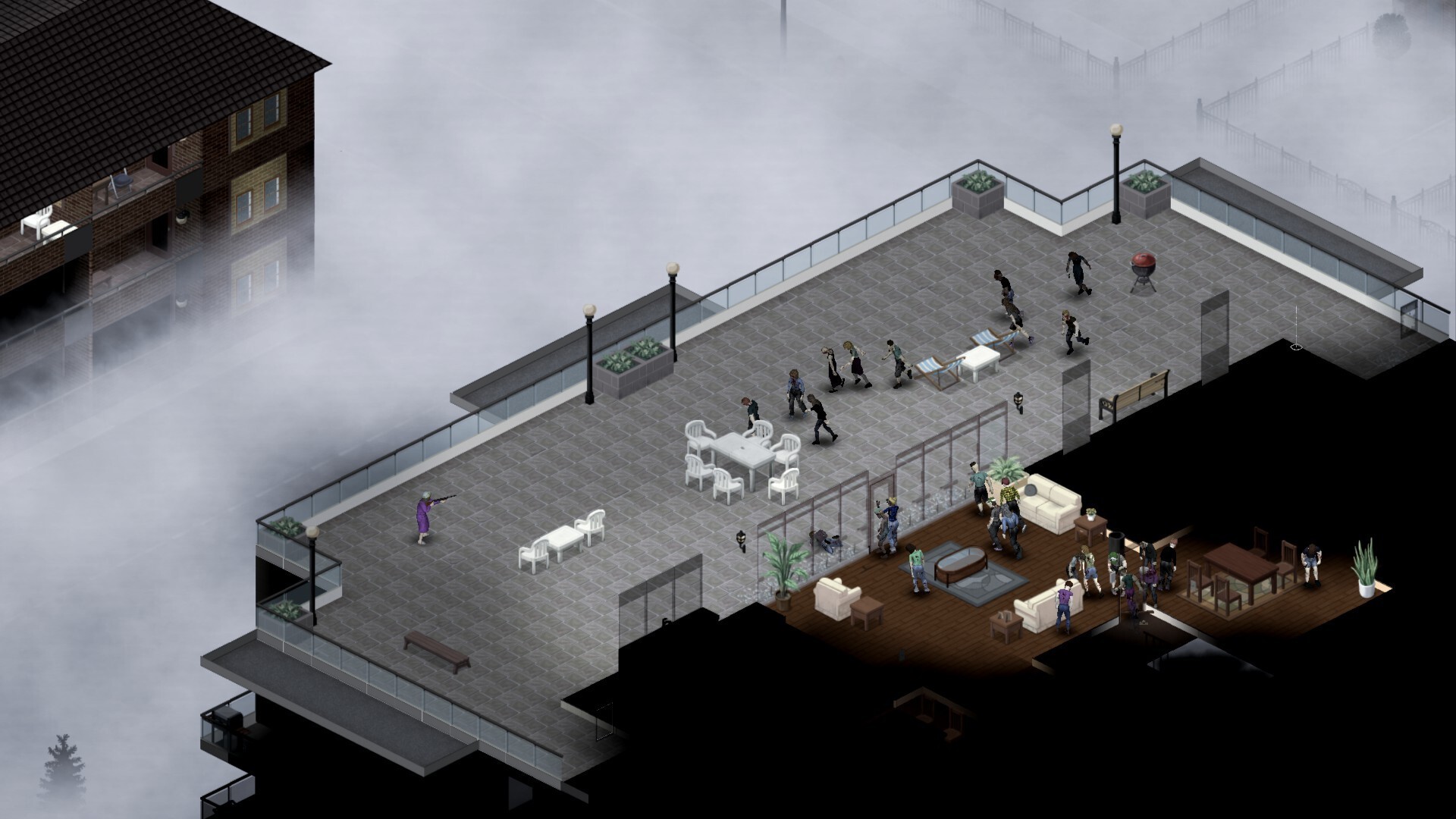 Combat in Project Zomboid is dangerous, as a single scratch can lead to infection. Engage zombies only when necessary, prioritizing stealth and crowd control. Mastering combat techniques reduces risks and conserves weapon durability.
Combat in Project Zomboid is dangerous, as a single scratch can lead to infection. Engage zombies only when necessary, prioritizing stealth and crowd control. Mastering combat techniques reduces risks and conserves weapon durability.
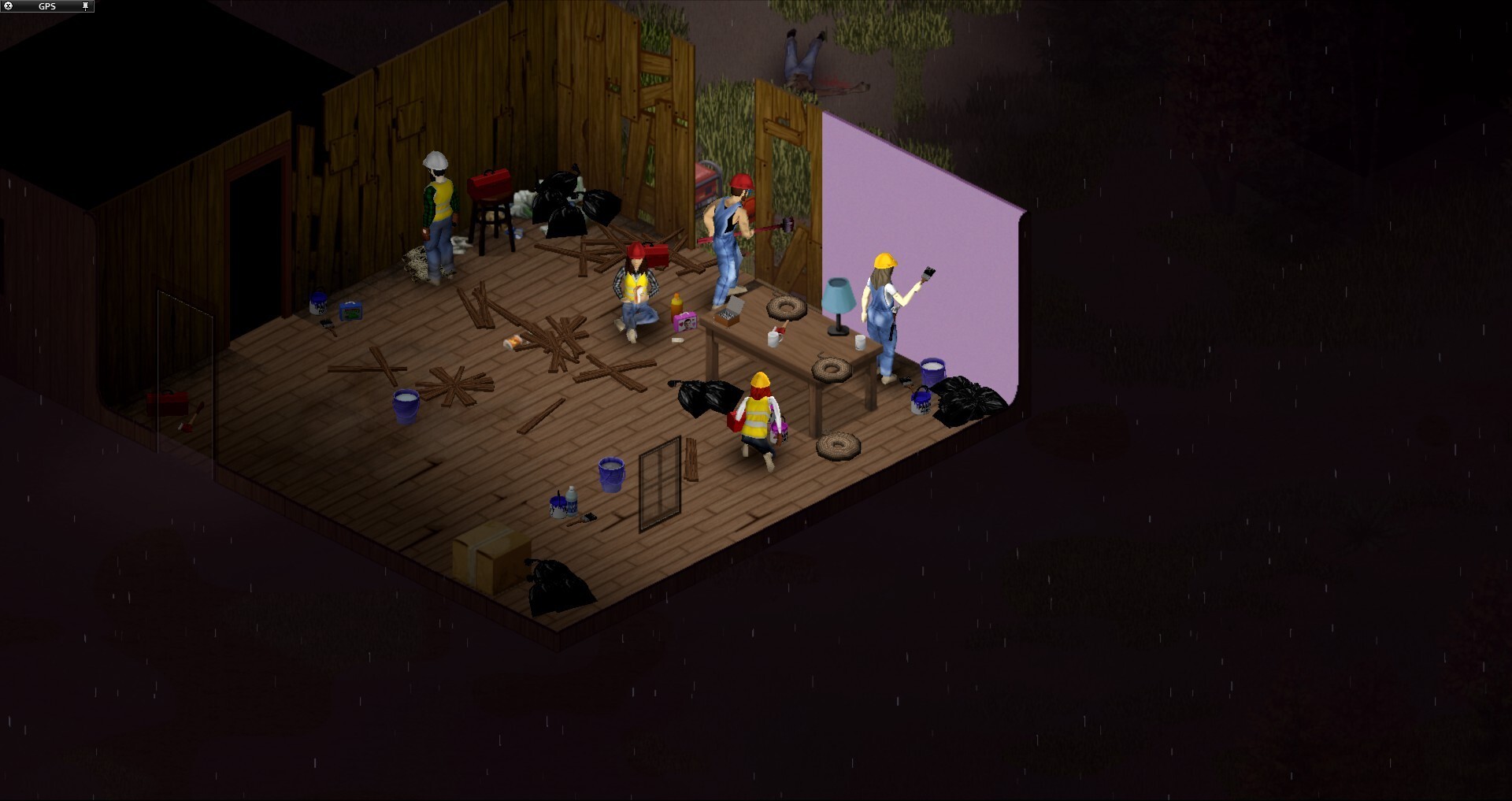 The power outage (0-30 days) marks a turning point, cutting off lights, fridges, and gas pumps. Generators are vital for restoring power, but require preparation and knowledge to use safely.
The power outage (0-30 days) marks a turning point, cutting off lights, fridges, and gas pumps. Generators are vital for restoring power, but require preparation and knowledge to use safely.
1. Master the Basics: Starting Your First Day
 The first day in Project Zomboid is critical, as it sets the tone for your survival. You spawn in a random house or trailer, surrounded by potential threats. Your immediate goal is to secure basic supplies and stay quiet to avoid attracting zombies. Begin by crouching (default key: C) to reduce noise and visibility, as zombies can hear footsteps and see you through windows.
The first day in Project Zomboid is critical, as it sets the tone for your survival. You spawn in a random house or trailer, surrounded by potential threats. Your immediate goal is to secure basic supplies and stay quiet to avoid attracting zombies. Begin by crouching (default key: C) to reduce noise and visibility, as zombies can hear footsteps and see you through windows.
Stay Stealthy
Crouching is your best friend early on. Moving slowly minimizes noise, helping you avoid detection. Close curtains or hang sheets over windows to block zombie sightlines. If a window lacks curtains, right-click to hang a sheet from your inventory. This simple action can prevent zombies from spotting you inside your spawn house.Gather Essentials
Search the house for key items: a weapon (like a hammer or frying pan), food (canned goods and perishables), a can opener, a water container, and a backpack. Prioritize lightweight, non-perishable food and rip spare clothes into sheets for makeshift bandages. Equip your weapon immediately, as zombies can appear unexpectedly. Check the fridge and cabinets, but avoid over-encumbering yourself—keep your carry weight below 50% for mobility.- Checklist for Day 1:
- Weapon (e.g., hammer, crowbar)
- Food (canned goods, fresh produce)
- Water bottle or pot
- Backpack or bag
- Ripped sheets for bandages
2. Choose Your Spawn Wisely: Picking the Right Town
Project Zomboid offers four starting towns—Rosewood, Riverside, Muldraugh, and West Point—each with unique pros and cons. Your choice impacts early-game difficulty, as zombie density and loot availability vary. For beginners, selecting the right spawn can make survival more manageable.Rosewood: The Beginner’s Haven
Rosewood is ideal for new players due to its low zombie population and accessible resources. The town features a fire station, police station, and a small downtown area with lootable stores. Secure a safehouse near the outskirts to minimize zombie encounters. Rosewood’s spread-out layout makes it easier to sneak around and gather supplies without drawing hordes.Riverside: Loot-Rich but Riskier
Riverside offers excellent loot, including a Gigamart and a bookstore, but has a slightly higher zombie density. Its proximity to the river provides fishing opportunities, ideal for long-term survival. Choose Riverside if you’re comfortable with stealth and want access to high-quality loot early on. Avoid downtown until you’re better equipped.3. Optimize Your Character: Traits and Occupations
 Character creation significantly affects your playstyle. Occupations and traits shape your starting skills and abilities, influencing how you tackle challenges. A well-built character can make early survival smoother and long-term goals more achievable.
Character creation significantly affects your playstyle. Occupations and traits shape your starting skills and abilities, influencing how you tackle challenges. A well-built character can make early survival smoother and long-term goals more achievable.
Best Occupations for Beginners
Occupations like Firefighter (boosts strength and fitness) or Carpenter (increases carpentry skill) are excellent for novices. Firefighters excel in combat and carry more weight, while Carpenters can build barricades and furniture faster. Avoid occupations like Unemployed unless you’re confident in managing trait points manually.Trait Selection Tips
Positive traits like Dextrous (faster item transfer) and Lucky (better loot chances) are universally useful. For negative traits, consider Smoker (+4 points, manageable with cigarette stockpiles) or High Thirst (+6 points, countered by carrying extra water). Avoid traits like Obese or Clumsy, as they severely hamper mobility and stealth.- Recommended Traits:
- Positive: Dextrous, Lucky, Fast Learner
- Negative: Smoker, High Thirst, Weak Stomach
4. Secure a Safehouse: Fortifying Your Base
A safehouse is your sanctuary in Project Zomboid. Early on, find a defensible location to store supplies and rest safely. Fortifying a base requires planning, as zombies can break through weak defenses if attracted by noise or light.Choosing the Right Location
Look for a two-story building with multiple exits, preferably on the outskirts of town. A second floor allows escape via sheet ropes if the ground floor is overrun. Avoid downtown areas with high zombie density. Check for nearby water sources (like rivers) and open land for future farming.Barricading Basics
Use a hammer, nails, and planks to barricade windows and doors. Disassemble furniture or break wooden crates for planks if needed. Prioritize boarding up windows, as zombies can climb through them. Hang sheets over windows to block visibility. For added security, destroy ground-floor stairs with a sledgehammer and use sheet ropes for access, ensuring zombies can’t reach you.5. Manage Resources: Food and Water Strategies
 Surviving long-term requires careful resource management. Power and water shut off within 0-30 days (default settings), making food and water preservation critical. Stockpiling and planning ahead are key to avoiding starvation or dehydration.
Surviving long-term requires careful resource management. Power and water shut off within 0-30 days (default settings), making food and water preservation critical. Stockpiling and planning ahead are key to avoiding starvation or dehydration.
Food Prioritization
Eat perishable foods (like fruits and meat) first, saving canned goods for later. Store perishables in a fridge or freezer while power is active. Learn basic cooking to combine ingredients into nutritious meals, reducing hunger more effectively. Avoid rotten food unless desperate, as it can cause sickness.Water Collection
Fill every container (pots, bottles, buckets) with water before the outage. After water shuts off, build rain collector barrels using 4 planks, 4 nails, and 4 garbage bags. Boil river or lake water to make it safe for drinking. Stockpile garbage bags early, as they’re lightweight and essential for rain collectors.- Water Storage Tips:
- Fill sinks, bathtubs, and containers before the outage.
- Build multiple rain collectors for redundancy.
- Always boil non-tap water to avoid illness.
6. Combat Wisely: Fighting Zombies Safely
 Combat in Project Zomboid is dangerous, as a single scratch can lead to infection. Engage zombies only when necessary, prioritizing stealth and crowd control. Mastering combat techniques reduces risks and conserves weapon durability.
Combat in Project Zomboid is dangerous, as a single scratch can lead to infection. Engage zombies only when necessary, prioritizing stealth and crowd control. Mastering combat techniques reduces risks and conserves weapon durability.
Melee Combat Tips
Use weapons like crowbars or fire axes for high durability and damage. Push zombies (default: Spacebar) to knock them down, then stomp their heads to save weapon durability. Fight one or two zombies at a time, luring them away from hordes. Backpedal while swinging to maintain distance.Avoid Guns Early
Firearms attract zombies from a wide radius, making them risky for beginners. Save guns for emergencies or after establishing a secure base. If using a gun, ensure you have an escape route, as the noise will draw hordes. Level up aiming skill by practicing on isolated zombies first.7. Level Up Skills: Boosting Experience Efficiently
Skills define your character’s capabilities, from crafting to combat. Leveling up requires time and resources, but certain strategies accelerate progress. Focus on skills that align with your playstyle and survival goals.Skill Books and TV Shows
Read skill books to multiply experience gains for specific skills (e.g., Carpentry Vol. 1 for carpentry). For the first 9 days, watch Life and Living TV at 6 AM, 12 PM, and 6 PM for free experience in cooking, carpentry, and foraging. Combine TV watching with reading skill books for maximum gains.Safe Grinding Methods
Practice skills in controlled environments. For example, disassemble furniture to level carpentry or rip clothes for tailoring experience. Sneak around zombies to improve stealth without engaging. Avoid risky grinding (like fighting hordes) until you’re well-equipped.8. Explore Smartly: Looting and Foraging
Looting and foraging are essential for gathering supplies, but reckless exploration can lead to death. Plan your trips, stay stealthy, and prioritize high-value targets to maximize efficiency.Looting Priorities
Target houses, garages, and stores for specific items. Garages often contain tools (hammers, saws) and generators, while kitchens yield food and can openers. Bookstores and libraries are goldmines for skill books. Always check zombie corpses for rare items like keys or weapons.Foraging for Survival
Foraging (default: Search mode) provides renewable resources like berries, medicinal herbs, and crafting materials. Level up foraging to identify more items and reduce poisoning risks. Forage in forests or rural areas to avoid zombies. Carry a spear for crafting, as it’s lightweight and effective.9. Prepare for Power Outage: Generators and Fuel
 The power outage (0-30 days) marks a turning point, cutting off lights, fridges, and gas pumps. Generators are vital for restoring power, but require preparation and knowledge to use safely.
The power outage (0-30 days) marks a turning point, cutting off lights, fridges, and gas pumps. Generators are vital for restoring power, but require preparation and knowledge to use safely.
Finding and Using Generators
Search sheds, garages, and warehouses for generators. Read the “How to Use Generators” magazine to learn how to operate them. Place generators outside to avoid carbon monoxide poisoning and connect them to your base. They power a 20-tile radius, including two floors above and below.Fuel Management
Siphon fuel from cars or gas stations using a gas can. Stockpile fuel before the outage, as gas pumps require a generator post-shutdown. Drive slowly to conserve fuel and avoid crashes, which can be lethal. Keep gas cans in a secure storage area away from your sleeping zone.10. Plan for the Long Term: Farming and Sustainability
Long-term survival demands self-sufficiency. Farming provides a renewable food source, while other systems like trapping and fishing complement your resources. Start planning early to ensure stability.Setting Up a Farm
Use a trowel to dig plots, then plant seeds (found in sheds or stores) and water them regularly. Build farms on flat roofs or fenced areas to protect crops from zombies. Track growth stages and harvest times using a notebook. Rotate crops to maintain soil fertility.Diversifying Resources
Learn fishing or trapping to supplement your diet. Fishing requires a rod and bait, while trapping needs traps and bait like vegetables. Both skills provide protein-rich food, reducing reliance on canned goods. Stockpile non-perishables as a backup for crop failures or winter scarcity.- Long-Term Goals:
- Establish a farm with 10+ plots.
- Learn fishing or trapping for protein.
- Maintain a stockpile of 30+ canned goods.
















